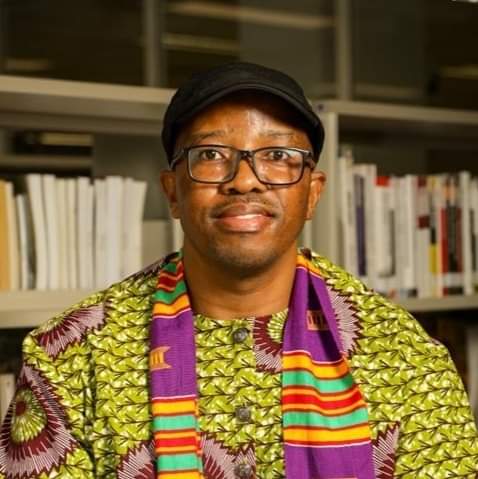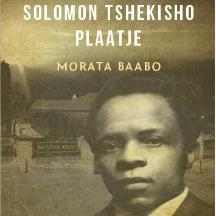In 1898, a man by the name of Solomon Tshekisho Plaatje arrived in the small town of Mahikeng, from the cosmopolitan South African town of Kimberley, to work as a court interpreter. He was received by the Molema family in whose home he briefly lived.
It was during this time that he met seven-year-old Modiri Molema. Plaatje was twenty-two years old at the time. Despite the age gap, the two young men’s relationship caught up like wildfire. Modiri admired Plaatje, a young court interpreter who spoke English, Dutch, German, and several African languages flawlessly.
Shortly after Plaatje’s arrival in Mahikeng, a war between the British and the Afrikaners broke out and the town was besieged. During the siege, Plaatje met war correspondents and developed an interest in journalism.
A growing Modiri Molema witnessed Solomon Plaatje’s rise to becoming a spokesman for his people through the newspaper he edited. He was there in 1912 when Solomon Plaatje was elected the first secretary-general of the African National Congress.
During that time, he wrote a war diary which was only published in 1973, four decades after his death, with the title “The Boer War Diary of Sol T. Plaatje: An African at Mafeking.” Shortly after the siege, he resigned from the court and became the founding editor of a bilingual (English/Setswana) newspaper Koranta ea Becoana.
A growing Molema witnessed Plaatje’s rise to becoming a spokesman for his people through the newspaper he edited. He was there in 1912 when Plaatje was elected the first secretary-general of the African National Congress, the governing party in South Africa since Nelson Mandela became president in 1994.
He exchanged letters with African-Americans WEB Du Bois and Tuskegee Institute's Robert Russa Moton.
He met Plaatje in Europe when Plaatje was writing his seminal book “Native Life in South Africa,” when Plaatje was the first African to translate William Shakespeare’s plays into an African language, and when he was the first Black South African to write an English novel “Mhudi” in 1930. He last saw Plaatje alive just a few days before the latter’s death in the winter of 1932 and accompanied his body from Johannesburg to Kimberley for burial.
In the 1960s, Molema set out to write a short biography of Plaatje in Setswana, a southern African language spoken by both of them. He submitted it to a publisher in Botswana in 1965 and died in the same year. The biography was never published. In 1976 two young scholars Brian Willan and Tim Couzens asked for the manuscript and deposited it at Wits University archives in Johannesburg where it has always been preserved.
“Solomon Tshekisho Plaatje - Morata Baabo” (Morata Baabo means lover of his people) will be launched in Kimberley on June 23 2022, more than half a century after it was written.
In 2012, two other scholars Karen Haire and Daniel Matjila translated it into English and for the first time it was made widely available to readers, albeit in a translated form. Now in 2022, the 90th year since Plaatje died, the biography “Solomon Tshekisho Plaatje - Morata Baabo” by Modiri Molema is being published for the first time in the language in which it was written.
In this book, Molema tells the story not only of Plaatje the pioneering journalist and author, or the politician, but of Plaatje the person. He tells of Plaatje the avid reader, the one who mesmerized him with his ability to tell stories, the one who carried and lifted up in celebration a child who did well at school, the one who was deeply committed to the liberation of his people, and the one who was hurt by the early deaths of his two children. Molema also tells of Plaatje’s struggles to keep the newspaper afloat and to get his books published, against all odds.
“Solomon Tshekisho Plaatje - Morat a Baabo” (Morata Baabo means lover of his people) is the only biography of Plaatje to be written in his own language, by a person who knew him personally, and at some point lived in the same house with him. It has been a great honor and privilege to be the editor of this book and help to make it accessible to the people for whom it was initially written. It will be launched in Kimberley on June 23 2022, more than half a century after it was written.
Note: Plaatje traveled in Europe, Canada, and the United States with the intent of enlightening the public on the Black African’s situation in South Africa. He exchanged letters with African-Americans WEB Du Bois and Robert Russa Moton, who succeeded Booker T Washington as principal of Tuskegee Institute.








